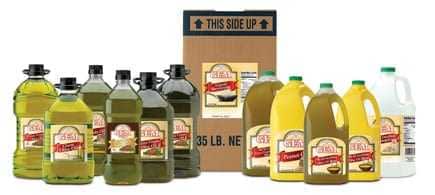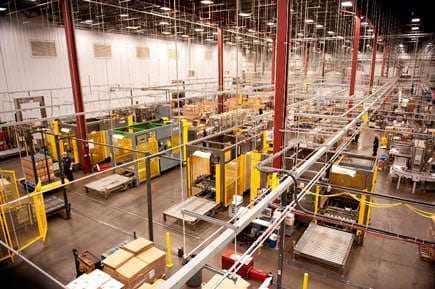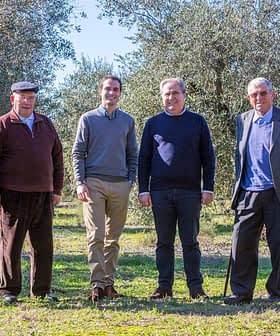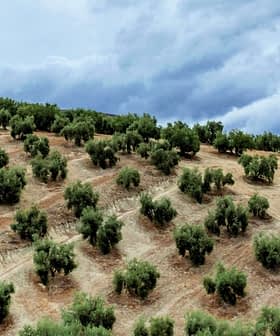Just over 20 years ago, when the olive oil market was on the cusp of major growth in the United States, Steve Mandia was living in Imperia, Italy, while working for the company Oleificio Borelli Spa. After a few years of immersion in the Italian olive oil industry, Mandia recognized a need for change.
“I understood that Italy was a very large importer, processor, and packager of olive oil, but a local presence was needed in the market in order to successfully distribute to a worldwide customer base.” Mandia recalls the difficulty he had working within the Italian olive oil business, “I was working for an exporter and was in charge of selling to the U.S., Canada, and other English-speaking countries. We had a difficult time selling to the ever-changing customers in the U.S. because we didn’t have a presence there and weren’t able to adapt to the needs of the local market.”
“The United States customer is more about service than anything else,” says Mandia. “They can’t wait for transportation issues or the supply of packaging to become available — you have to have the product when they want it at the quality that they want.” Mandia realized that servicing the customer at the local level was the key to success. “By bringing the product directly from the source to the customer base, we’d be able to service the customer much better locally than abroad. I saw a great opportunity for a company in the United States.”
In 1991, Mandia founded East Coast Olive Oil Corporation. He saw the best opportunity with major customers, as plenty of small importers were already buying and selling olive oil within their local markets. It was the large manufacturers of food products in the U.S. that Mandia was after.
“While we bought olive oil from Italy, we primarily sourced from other countries — Tunisia, Turkey, and Spain — as the Italians were doing. We started off selling bulk and private label to the foodservice industry,” supplying companies like Ragu Spaghetti Sauce and Pam Olive Oil Spray, “that’s the kind of market we structured our business around.”
At the inception of East Coast Olive Oil, Mandia says the market in the U.S. was capped off at 50,000 metric tons. Today it has reached approximately 300,000 metric tons. “The ethnic consumer has always been consuming olive oil and will continue to do so. The explosion of olive oil in the U.S. market was due to the non-ethnic consumer coming to the realization that there’s a health benefit to olive oil and the Mediterranean diet.”
East Coast Olive Oil pinpointed its target customer at just the right time. “It was the late 80s, early 90s when the growth rate in the U.S. olive oil market really took off.” The timing was everything. “Obviously, I think we did a great job capturing the market, but having a market growing by double-digit percentages in any given year helped us succeed.”
Over time, East Coast Olive Oil began expanding the company. “When we started, there were only a few of us running the company,” Mandia recalls. After several acquisitions, East Coast Olive Oil had branched out from bulk and private label to branded products. “We were very aggressive in growing our business. In 1995, when the company was rather dormant, we bought Gem Oil, which gave us a brand and a very large customer base in the North East. We also acquired Puglia Brand, which was a staple product in the metro New York and New Jersey area.”
In 2003, the company acquired a New England based boutique company called California Olive Oils that specialized in extra virgin olive oil, flavored oils, and vegetable oils. By promoting their new brands and expanding their product line, East Coast Olive Oil gained a strong foothold in the marketplace. “We’ve been lucky to grow with some of these small companies,” says Mandia who credits the financial strength of his company to these acquisitions and to the consolidation of facilities. “We took down packing facilities that we didn’t use and rolled this revenue into the company without the overhead.”
There have also been challenges along the way. “The challenge is always trying to sell a quality product in a market that doesn’t always sell quality products.” Mandia says the company’s goal has always been to educate the customer. “Once they physically know the differences in quality and have a sense of security with what they’re buying, if we’re able to service them well enough, I’ve found you can keep a customer for a long period of time.”
Of course, the challenges in the beginning greatly differ from the challenges the company experiences today. “In evolving a small company into a bigger company you have the challenge of running a day-to-day business — making sure you staff your company with professional people, being able to service the customers in an ever-changing environment (from selling primarily bulk to producing our own private label bottles) and continuously staying ahead of the competition curve.”
“There are two sides to this business,” says Mandia. “One is the sourcing side, and the other is the sales side. We really separated ourselves by first of all being here, and secondly by the products and the packaging offerings that we sell.” Today the company offers organic oils, mono-varietals, refined oils, and specialty oils all in different types of packaging — from a 250 mL bottle to bulk oil and everything in between. “We are a one-stop-shop,” says Mandia, “we’ve really dominated in that market.”
Two decades or so later, much has changed. When Mandia started in the olive oil business most customers were local importers buying a container at a time from a company in Italy. Today, Mandia’s company has grown from a few founders to one of the largest importers of olive oil in the United States.
“We can offer the same values for someone who used to order a container at a time. Instead of buying $20,000 worth of product, they can buy $5,000 on a weekly basis.” Mandia refers to this way of distribution and logistics as the “Walmart mode,” saying that “people want quick returns on their product; they want it delivered on a specific day, not within a window of 10 days to 2 weeks. That’s the secret to our success — being able to service that very defined need for different customers.”
But the biggest change that East Coast Olive Oil has seen over the years came in 2005 when Mandia decided to sell part of the company to the Sovena Group, a Portuguese company and one of the world’s largest olive oil producers. In 2007, East Coast Olive Oil was renamed Sovena USA. “The business had grown tremendously,” explains Mandia. “We were running the business out of 3 different facilities, and we needed an investment in a new facility. I was looking for an industrial partner to help the business grow.” Above all, Mandia was looking for a European partner because he believed this would help the company not only in sourcing, product knowledge, and expertise, but also for the image of the company.
“Part of the deal for me was gaining more professionals within the organization that offered a certain level of expertise. It’s not easy to find an olive oil expert here in the U.S., we just don’t have an industry to pull from. Bringing someone in who’s well versed in olive oil — like our director of quality assurance of Sovena USA, Gabi Estevez, from Seville, Spain — is very helpful; it helps educate our customers.”
By joining forces with Sovena, Mandia feels he was able to bridge the gap between his company and the market overseas. “When you grow an organization, you can’t grow it all by yourself. You need to implement a management team to help bring you to the next level. I think Sovena was the right choice for me,” says Mandia, adding “Today, Sovena USA, which is located in Rome, New York, has the foremost packaging facility in the U.S. by far.” Other Sovena facilities are located in Portugal, Spain, and Tunisia, which gives the customer a lot of choices, “Whether they want to buy product packed directly in Spain, or be able to buy directly from our facility, I think we can encompass anybody’s needs within our organization.”
Looking toward the future, Mandia sees great potential for growth. “If you look at the olive oil consumption here in the U.S. compared to other industrialized countries, our consumption is still very low. I think that the IOC (International Olive Council) has recognized that and is willing to invest in promoting extra virgin olive oil here in North America, which will help this next growth come in our industry.”
Mandia believes he’s taken his company to the top when it comes to quality, quality controls, and packaging abilities. “Today Sovena is the single largest grower of olive trees for extra virgin olive oil in the world. Having that cradle to grave logistics — taking an olive from an olive tree and putting it into a bottle and onto the shelf — will certainly separate us from the rest of the competition.”
Steve Mandia studied Business at Bentley University just outside of Boston, Massachusetts. During this time he also spent a semester studying at Richmond College in London which he says gave him a chance to travel around Europe and become comfortable with the different monetary exchanges and the feeling of living in a foreign place. “Looking back I’ve always said that was an educational experience that really opened my eyes to the world itself,” he says.
While Mandia considers himself a “full-blown American” at this point, his roots trace back to Italy. His family has lost touch with their relatives in Italy. Nevertheless, Mandia and his tight-knit Italian family continue to carry on certain traditions. “I grew up visiting my grandmother’s house every Sunday for breakfast which included olive oil — meatballs fried in olive oil, fresh-made bread for dipping in olive oil — it was all about the olive oil back in the day,” says Mandia.
“I remember my grandmother kept a big gallon can of olive oil under the sink, and my grandfather would always have a big plate of vegetables with olive oil, salt and pepper.” Today, the memories and the olive oil still flow in rich abundance as the Mandia family continues their Sunday tradition. “I’m 47 years old, and I still go every Sunday to my grandmother’s for the same feast. We have 4 generations — my grandmother, my father, uncles, myself and my brothers, and our kids — and we still enjoy that routine.”












